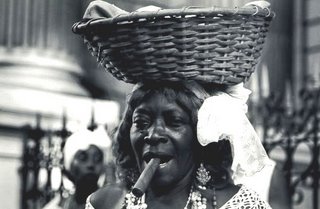 The Origin of Cigars
The Origin of CigarsThe indigenous inhabitants of the islands of the Caribbean Sea and Mesoamerica have smoked cigars since at least the 900s AD, as evidenced by the discovery of a ceramic vessel at a Mayan archaeological site in Uaxactun, Guatemala, decorated with the painted figure of a man smoking a primitive cigar. Genoese explorer Christopher Columbus is generally credited with the introduction of smoking to Europe, an action which is often termed the "discovery" of smoking, despite his having borrowed the practice from the indigenous Americans.
Two of Columbus's crewmen during his 1492 journey, Rodrigo de Jerez and Luis de Torres, are said to have disembarked in Cuba and taken puffs of tobacco wrapped in maize husks, thus becoming the first European cigar smokers.
In the 19th century, cigar smoking was common while cigarettes were still comparatively rare. The cigar business was an important industry, and factories employed many people before mechanized manufacturing of cigars became practical. Many modern cigars, as a matter of prestige, are still rolled by hand; some boxes bear the phrase Hecho a Mano, "Made by Hand", as proof.
- Little Bro
www.schwartzbroscigars.com
No comments:
Post a Comment